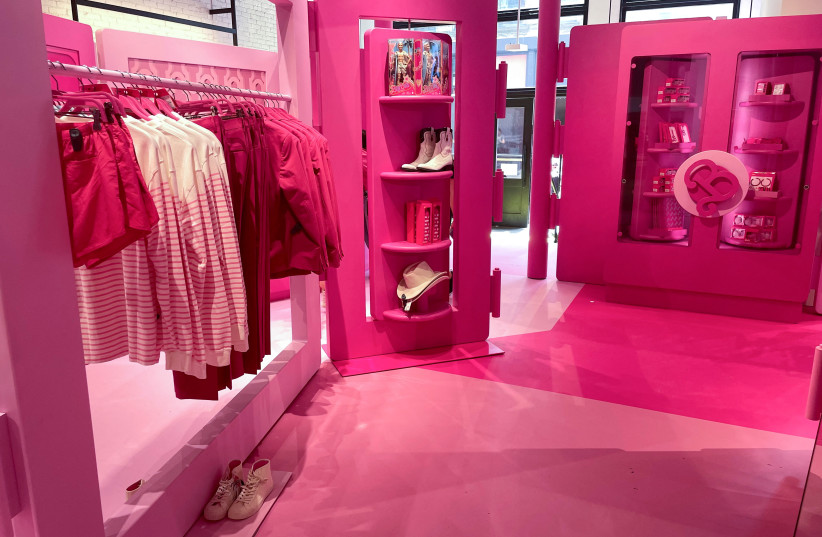Making a movie about the Mattel company’s doll Barbie is all very nice, but the firm has been criticized for “stealth marketing” after giving away free Barbie and Ken dolls to British schools as part of a program to teach empathy to children, according to an investigation published by the BMJ.
Investigative journalist Hristio Boytchev reported that Mattell’s “Barbie School of Friendship” program in which free dolls are given for children to carry out role-play exercises, has been rolled out to 700 schools across the UK “with the potential to reach more than 150,000 pupils.” His study was entitled “Neuroscience or stealth marketing? Experts alarmed at free Barbies for primary schools to teach social skills.”
Barbie is a fashion doll manufactured by American toy company Mattel that was created by American businesswoman Ruth Handler and launched in 1959.
Mattel countered that it has sponsored research showing that playing with dolls offers “major benefits” for child development, including nurturing skills like empathy. Leaflets aimed at pupils said: “Enter the ‘Barbie’s School of Friendship’ Competition for a chance to win a Barbie Toy Bundle worth £100!!” They instructed the pupils to “draw a friend/Barbie/Ken” expressing a feeling of their choice to send into SUPER for a chance to win.
But experts have criticized the program, raising questions about the potential negative effects of Barbie dolls in terms of gender stereotyping, questioning the use of research to justify the program, and asking whether companies should be able to freely market their products through schools.

Positive and negative impacts of Barbie
“The project makes me suspicious that it may be exploitative,” said psychotherapist Philippa Perry, who has written books on parenting and education. “I feel faintly repulsed by it.”
Public health evaluation Prof. Mark Petticrew at the London School of Hygiene and Tropical Medicine also called the program “alarming.”
“Commercial entities like Mattel are not experts in children’s health or education, they are experts in selling products to maximize profits,” added May van Schalkwyk, a specialty public health registrar, also at the London school. “The Mattel materials are heavily branded; why should children be exposed to this type of stealth marketing?”
Lisa Georgeson, a teacher at Lord Blyton Primary School in Tyne and Wear that participated in the program, said the company had offered free resources “which, given the current lack of funding in schools, is always a positive thing.” On multiple occasions, in information aimed at teachers, parents, and the public, Mattel references the studies it has funded as the basis for the program.
The research is part of a five-year collaboration between Mattel and Cardiff University, according to a Mattel spokesperson. A paper published in 2020 found higher brain activity in children when they played with Mattel dolls compared with playing games on electronic tablet computers. A Mattel-sponsored reanalysis of the same experiment group concluded in 2022 that the children playing with dolls used more “internal state language” describing feelings and thoughts.
Franziska Korb, a psychologist at the Dresden University of Technology, Germany, told the BMJ that the study’s idea was good and the methodology appropriate but stressed that the studies found significant differences between doll and tablet play when each child was playing alone. When children played with an adult, the differences disappeared. Korb also said that the research can’t be used to make statements about long-term developmental or behavioral effects.
Sarah Gerson at Cardiff University, the senior author of both studies and recipient of Mattel's research funding, stated that she found the program “interesting” but expressed some reservations. She described Mattell’s statement to parents – that the research shows playing with dolls like Barbie offers major benefits – as “a bit strong.”
When presented with criticism of the program, a Mattel spokesperson sent anonymous teacher testimonials celebrating the program for the positive response it has elicited in pupils and the diversity of the dolls in terms of body type, disability, and skin tone and that the company will consider expanding the program to other markets.
The education department refused to confirm if it had evaluated the program and told the BMJ that British schools have the autonomy to introduce any educational materials they believe are appropriate.
The company’s offer of free resources was, “given the current lack of funding in schools, always a positive,” said Lisa Georgeson, a teacher at Lord Blyton Primary School in Tyne and Wear, which participated in the program.
A teaching assistant there delivered half-hourly sessions once a week for seven weeks, working with around eight boys and girls in reception class, Georgeson said. She said that the children enjoyed the sessions, which helped them engage in positive discussions about friendship, social skills, empathy, stereotypes, disabilities, and kindness.
“We are in a relatively socially deprived area, and many of our children don’t get the opportunity to engage in speaking and listening activities about subjects such as these,” Georgeson told the BMJ.
